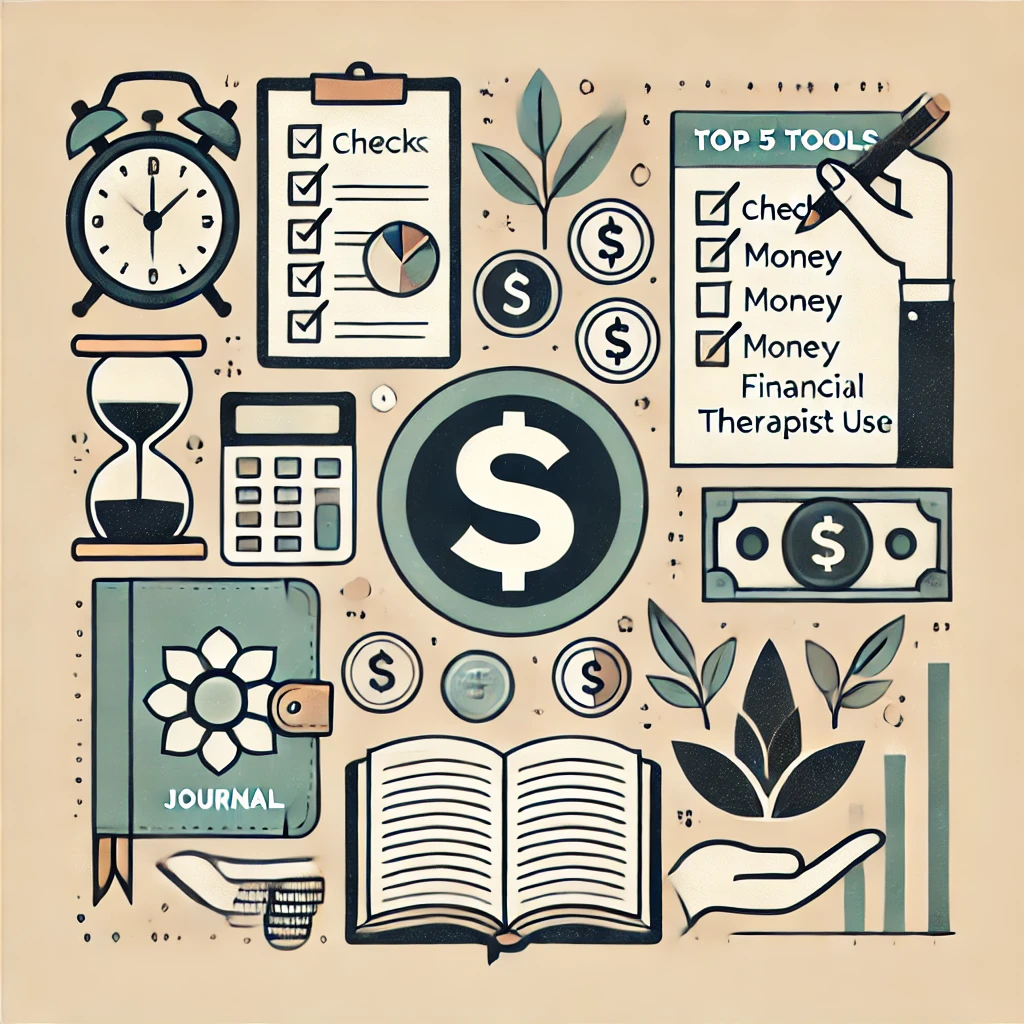As a financial therapist, having the right tools at your disposal is essential for helping clients navigate their emotional and financial challenges. These tools not only provide practical solutions but also support emotional healing and growth. In this blog, we’ll explore the top 5 tools that every financial therapist should have in their toolkit to improve client outcomes and streamline their practice.
1. Money Scripts Assessment
One of the most effective tools in financial therapy is the Money Scripts Assessment. Money scripts are unconscious beliefs about money that clients develop based on their life experiences. These beliefs often drive financial behaviors, such as overspending, avoidance of financial planning, or difficulty saving.
Using a Money Scripts Assessment helps you identify your clients’ underlying beliefs about money and how these beliefs affect their financial decision-making. Once these scripts are uncovered, you can work with clients to challenge and reframe them, promoting healthier financial habits.
2. Budgeting and Debt Management Worksheets
Financial stress often stems from poor budgeting and overwhelming debt. Providing clients with structured budgeting and debt management worksheets allows them to take control of their finances in a clear and manageable way. These tools help clients track their income, expenses, and debts, while also giving them the ability to set realistic financial goals.
By working through these worksheets, clients gain a sense of control over their financial situation, which reduces stress and fosters a more proactive approach to money management.
3. Financial Behavior Tracking Tools
Tracking financial behaviors over time can provide valuable insights into clients’ spending habits and emotional triggers. Financial behavior tracking tools allow clients to log their financial decisions and reflect on the emotional states that accompany those choices.
By using these tools, you can help clients become more aware of how their emotions influence their spending and saving habits. This awareness allows for deeper conversations about the emotional and psychological factors that drive financial behavior, leading to long-lasting change.
4. Mindfulness and Stress Reduction Techniques
Since financial stress is closely linked to mental health, incorporating mindfulness and stress reduction techniques into your financial therapy sessions can be highly beneficial. Techniques such as deep breathing exercises, meditation, and progressive muscle relaxation can help clients reduce anxiety and approach their finances with a clearer mind.
Teaching clients these techniques not only helps them cope with the emotional stress of financial challenges but also provides them with lifelong tools for managing stress in other areas of life.
5. Financial Therapy Journal
A financial therapy journal is a powerful tool for self-reflection and emotional growth. Encouraging clients to keep a journal where they document their financial goals, challenges, and emotional responses to money can be a transformative process. A journal provides a space for clients to explore their thoughts and feelings about money in a private and non-judgmental way.
By regularly reflecting on their financial journey, clients can gain new insights into their relationship with money, uncover patterns, and celebrate their progress.
Conclusion
These top 5 tools—Money Scripts Assessments, Budgeting and Debt Management Worksheets, Financial Behavior Tracking Tools, Mindfulness Techniques, and Financial Therapy Journals—are essential for any financial therapist looking to provide comprehensive support to their clients. Each of these tools addresses both the practical and emotional aspects of financial health, empowering clients to take control of their finances while fostering emotional well-being.

